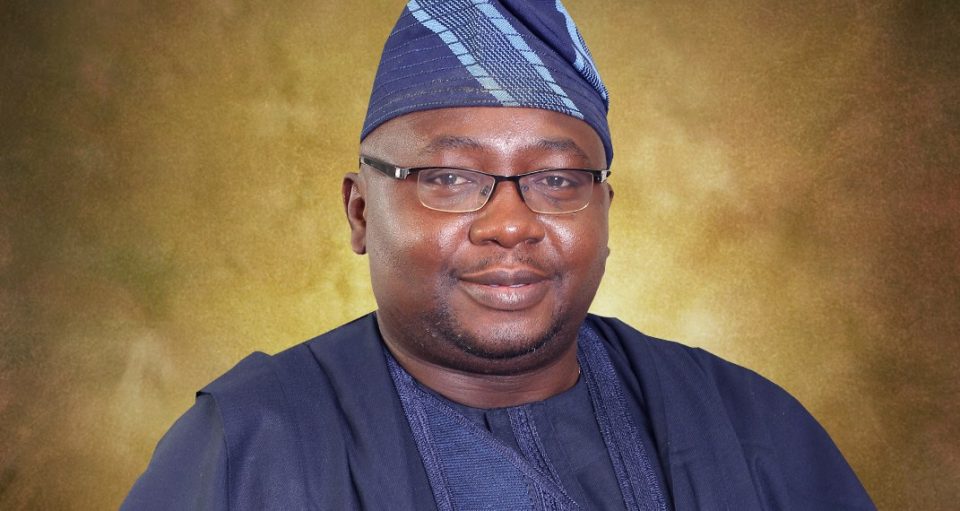The Federal Government has said the country’s electricity grid is now more stable, thanks to the addition of 700 megawatts in transmission capacity. The Minister of Power, Mr. Adebayo Adelabu, made this known over the weekend in Abuja when he hosted the European Union Ambassador to Nigeria, Mr. Gautier Mignot.
According to a statement issued by his media aide, Mr. Bolaji Tunji, on Sunday, Adelabu explained that the improved capacity was achieved through the ongoing Presidential Power Initiative, a multi-billion-dollar project designed to overhaul Nigeria’s power sector. The initiative, which is being supported with a $2.3 billion facility, aims to strengthen the country’s transmission network and solve long-standing issues with grid stability.
Before the intervention, the power grid reportedly became unstable anytime energy supply reached 5,000MW, causing frequent system collapses. But Adelabu said things are now changing, noting that about 90 per cent of the new transmission equipment has been installed and is working effectively.
“We have installed almost 90 per cent of this, and they are working. And that has improved transmission capacity by over 700 megawatts, which is the result of what we are seeing now in terms of relative stability in the transmission grid,” he said.
He further added that the government had completed the pilot phase of the Siemens-led project, which included installing 10 power transformers and 10 mobile substations across the country.
Highlighting recent progress in the power sector, Adelabu revealed that the country has recorded its highest average daily power consumption ever—over 20,000 kilowatt-hours. He also mentioned that the Nigerian Electricity Supply Industry (NESI) recently transmitted and distributed a record 5,801.63MW of energy, breaking a previous high set in 2021. Additionally, generation capacity reached a notable 6,003MW.
“These results didn’t happen by chance,” he said. “They are the outcome of serious efforts being made by this administration to turn the power sector around.”
The minister also called on the European Union and its member states to continue supporting Nigeria in terms of technical know-how, financial aid, and investment in renewable energy and infrastructure. He stressed that President Bola Ahmed Tinubu remains fully committed to tackling the sector’s challenges.
“We got electricity before some of the European countries, but today, they have stable power supply and industrial growth. We are still battling erratic supply. But President Tinubu has made the power sector a priority, and that is why things are beginning to change,” Adelabu said.
He also highlighted new progress in expanding electricity access to rural and underserved communities through solar and mini-hydro power projects, while noting that the 2023 Electricity Act signed by the President is a game-changer for decentralising power.
In another development, the Managing Director of Niger Delta Power Holding Company (NDPHC), Engr. Jennifer Adighije, was honoured with the Young Achiever of the Year award at the 2025 Energy Times Awards held in Lagos. She was recognised for adding 230MW to the national grid shortly after assuming office in August 2024 by restoring two faulty turbines.
“It’s a very humbling experience for us. We are a new management team, less than a year in office. But this is a call to work harder,” she said.
Adighije stated that NDPHC remains focused on scaling generation, transmission, and distribution capacities across Nigeria. She noted that the agency is the only one in the sector with a mandate to carry out interventions across the full power value chain—from gas to electricity.
Other award recipients at the event include the Governor of Ekiti State, Mr. Abayomi Oyebanji, who won Energy Governor of the Year; the Minister of Power himself, Mr. Adebayo Adelabu, as Power Sector Personality of the Year; former NNPC boss, Mr. Mele Kyari, as Man of the Year; and Mrs. Folake Soetan, CEO of Ikeja Electric, who was named Amazon of Nigeria’s Power Sector.
Companies also bagged various awards. Shell Nigeria Exploration and Production Company was named Major Oil Company of the Year, while Seplat Energy emerged Fastest Growing Indigenous Oil Firm. Heirs Energies, Egbin Power, and others were recognised for their roles in boosting power and energy development in the country.
